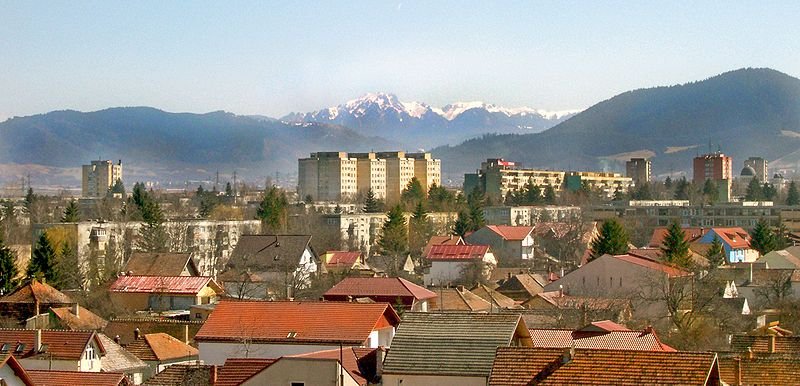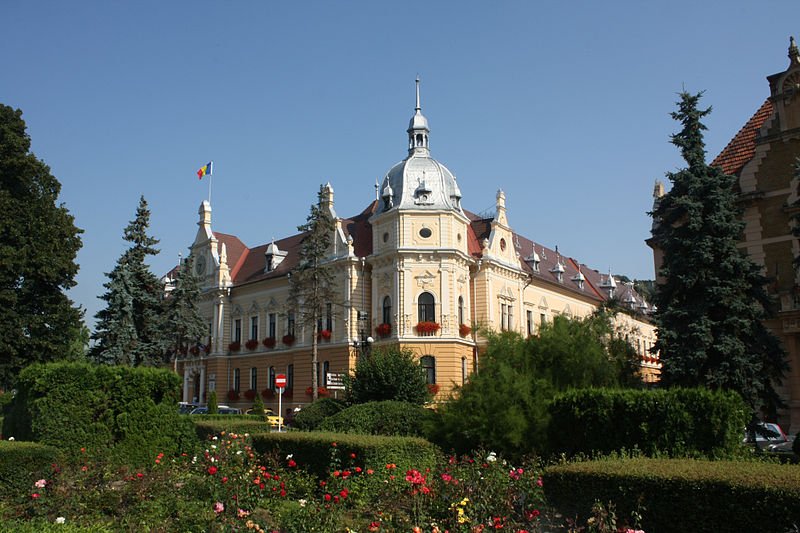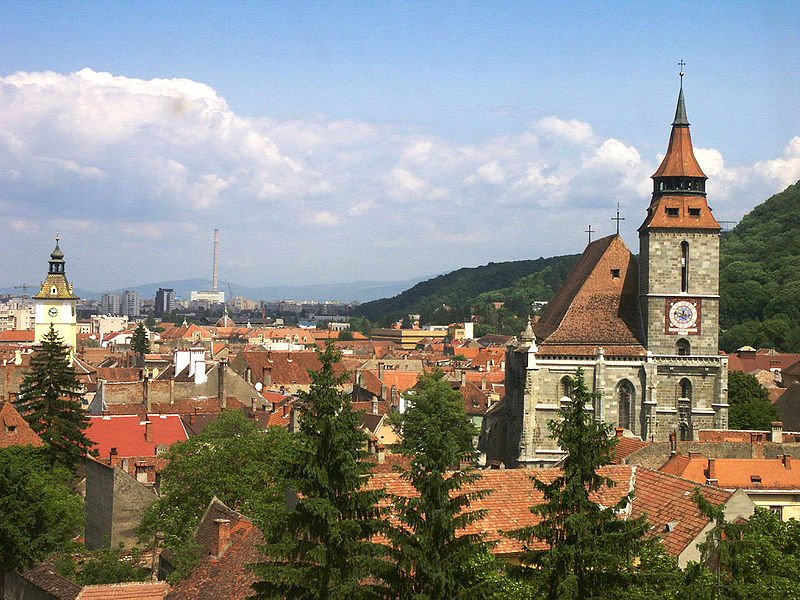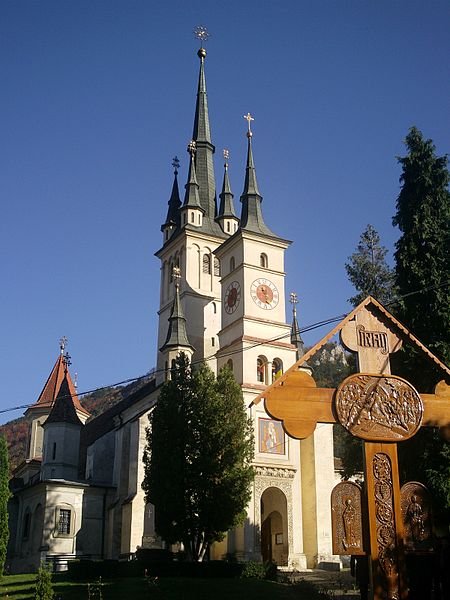 Braşov, Romania
Braşov, RomaniaSource: https://commons.wikimedia.org/wiki/File:Brasov_panorama.jpg
Author: Immanuel

Braşov (German: Kronstadt, Hungarian: Brassó) is the 8th most populous city in Romania. Located in the central part of the country about 166 km to the north of Bucharest, Braşov covers 267.2 sq km (103.2 sq mi) and has a population of 277,000 people (2011 estimate), within a metropolitan area of 402,000 people.
 Braşov city center
Braşov city centerSource: https://commons.wikimedia.org/wiki/File:Bra%C5%9Fov,_Romania_-_city_centre_(1).jpg
Author: Mercy

Braşov was first mentioned in AD 1235, when it was known by the Latin name of Corona, meaning "crown". From this name came the German name for the city, Kronstad. The city's name in Romanian and Hungarian are however derived from another source, the Turkic word barasu, meaning "white water". Between 1950 and 1960, it was also called Oraşul Stalin, in honor of Soviet leader Josef Stalin.
As in Hungary and Slovakia, Braşov saw an influx of German immigrants in the 12th century, at the invitation of King Géza II of Hungary, to settle and develop the town. In the 13th century the Teutonic Knights built the city of Kronstadt where the village of Braşov is located.
 View of Braşov with the Black Church
View of Braşov with the Black ChurchSource: https://commons.wikimedia.org/wiki/File:Brassopanorama.jpg
Author: RonyeczRobert

The German settlement in Braşov had a negative effect on the native Romanians, who found themselves denied some of the privileges of the new German settlers. Their Orthodox religion was also not officially recognized. Germans were the main ethnic group in Braşov during the mid 19th century, but their numbers began to drop over the next century. Today just 0.6% of the population of Braşov are of German background.
 Church of St Nicholas, Braşov
Church of St Nicholas, BraşovSource: https://commons.wikimedia.org/wiki/File:Biserica_Sf,_Nicolae_Scheii_Brasovului.jpg
Author: Kosson

There is also a small Jewish community in Braşov that dates back to 1807. As with elsewhere in Europe, the Jews suffered under the Second World War, and many left for Israel since then, leaving only a small Jewish community in Braşov today.
Visiting Braşov
Being a railway hub, Braşov gets many train services connecting it with Bucharest. There are also direct connections with Budapest, Vienna, Krakow and Prague.Places of Interest in Braşov
- Braşov Citadel (Cetatea Braşovului)
Reconstructed parts of the original city wall, dating from the time Braşov was a fortress city. - St Bartholomew Church (Biserica Sf. Bartolomeu)
One of the oldest churches in Braşov, located within the Old Town. - The Black Church
Officially the Evangelical Church of Augustan Confession in Romania, this is the largest and one of the most important Lutheran churches in the country. - Town Museum
Museum housed within the town hall. It displays local artifacts from prehistory to present day.
 Latest updates on Penang Travel Tips
Latest updates on Penang Travel Tips

Copyright © 2003-2025 Timothy Tye. All Rights Reserved.

 Go Back
Go Back